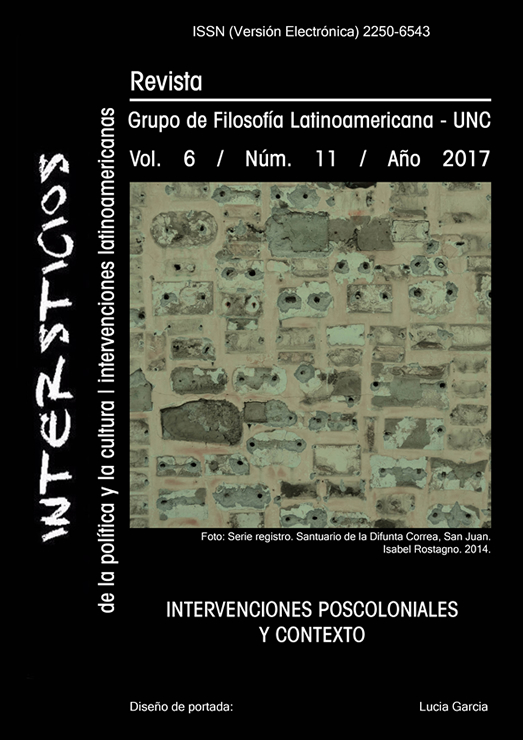Ontological Precisions on the Coloniality of Power
Keywords:
coloniality of power, intersectionality, cultural identity, one-dimensionalityAbstract
The present text aims to de-construct three of the main theoretical problematizations from which the exegesis of the decoloniality of power is thought. In the first place, a genealogy of the category of race is realized; secondly, it is analyzed the way in which decolonial discourse understands power; and then, it is analized the implications of thinking to coloniality as a heterarchical matrix. The thesis that articulates and gives coherence to the present study is that the central character of the racialization of the subjects in the coloniality of power comes from the ontological change that occurred, simultaneously, in the construction of modern capitalism, with the conquest and invention of America as problematic, geosocial and identity unit. Thus, by establishing a critical dialogue with the contributions that Aníbal Quijano and Santiago Castro-Gómez have made to these studies, an epistemological alternative is offered to the dominant notions in the contributions of both authors.Downloads
Downloads
Published
Issue
Section
License
Authors who have publications with this journal agree to the following terms:
a. Authors will retain their copyright and grant the journal the right of first publication of their work, which will simultaneously be subject to the Creative Commons Attribution License that allows third parties to share the work as long as its author and first publication in this journal are indicated.
b. Authors may adopt other non-exclusive license agreements for distribution of the published version of the work (e.g., deposit it in an institutional telematic archive or publish it in a monographic volume) as long as the initial publication in this journal is indicated.
c. Authors are allowed and encouraged to disseminate their work through the Internet (e.g., in institutional telematic archives or on their web page) after the publication process, which may produce interesting exchanges and increase citations of the published work (see The effect of open access).











